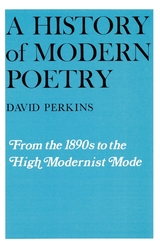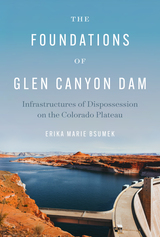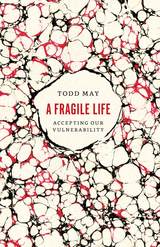
The first comprehensive history of modern poetry in English from the 1890s to the 1920s, this book embraces an era of enormous creative variety—the formative period during which the Romantic traditions of the past were abandoned or transformed and a major new literature created. By the end of the period covered, Eliot’s The Waste Land, Lawrence’s Birds, Beasts and Flowers, Stevens’s Harmonium, and Pound’s Draft of XVI Cantos had been published, and the first post-Eliot generation of poets was beginning to emerge.
More than a hundred poets are treated in this volume, and many more are noticed in passing. David Perkins discusses each poet and type of poetry with keen critical appreciation. He traces opposed and evolving assumptions about poetry, and considers the effects on poetry of its changing audiences, of premises and procedures in literary criticism, of the publishing outlets poets could hope to use, and the interrelations of poetry with developments in the other arts—the novel, painting, film, music—as well as in social, political, and intellectual life. The poetry of the United States and that of the British Isles are seen in interplay rather than separately.
This book is an important contribution to the understanding of modern literature. At the same time, it throws new light on the cultural history of both America and Britain in the twentieth century.

There have been many books on early modernist poetry, not so many on its various sequels, and still fewer on the currents and cross-currents of poetry since World War II. Until now there has been no single comprehensive history of British and American poetry throughout the half century from the mid-1920s to the recent past. This David Perkins is uniquely equipped to provide; only a critic as well informed as he in the whole range of twentieth-century poetry could offer a lucid, coherent, and structured account of so diverse a body of work.
Perkins devotes major discussions to the later careers of the first Modernist poets, such as Eliot, Pound, Stevens, and Williams, and to their immediate followers in the United States, E. E. Cummings, Archibald MacLeish, and Hart Crane; to W. H. Auden, Dylan Thomas, and the period style of the 1930s; to the emergence of the New Criticism and of a poetry reflecting its tenets in William Empson, John Crowe Ransom, Allen Tate, John Berryman, and Robert Lowell, and to the reaction against this style; to postwar Great Britain from Philip Larkin and the “Movement” in the 1950s to Ted Hughes, Charles Tomlinson, and Geoffrey Hill; to the theory and style of “open form” in Charles Olson and Robert Duncan; to Allen Ginsberg and the Beat poetry of the 1960s; to the poetry of women’s experience in Sylvia Plath and Adrienne Rich; to the work of Black poets from Robert Hayden and Gwendolyn Brooks to Amiri Baraka; and to Elizabeth Bishop, W. S. Merwin, A. R. Ammons, John Ashbery, and James Merrill.
Perkins discusses some 160 poets, mentioning many others more briefly, and does not hesitate to explain, to criticize, to admire, to render judgments. He clarifies the complex interrelations of individuals, groups, and movements and the contexts in which the poets worked: not only the predecessors and contemporaries they responded to but the journals that published them, the expectations of the audience, changing premises about poetry, the writings of critics, developments in other arts, and the momentous events of political and social history. Readers seeking guidance through the maze of postwar poetry will find the second half of the book especially illuminating.


Hugh Kenner, Helen Vendler, Harry Levin, Nathan A. Scott, Jr., Barbara Johnson, J. Hillis Miller, and seven other scholars, critics, and metacritics at the forefront of intellectual developments in their fields offer provocative statements on the teaching of literature and on their own practices as teachers. The authors, differing widely in their areas of interest and their approaches to literature, stress an inherent relation between the classroom and their published writings, integrating teaching strategies with critical or theoretical positions.
Teaching is seen as an essential part of their work at large rather than a separate discipline with other methods and aims. Ranging over such topics as Shakespeare, feminism, composition, the teaching of poetry, and interpretation, the essays are mostly personal: descriptive, not prescriptive. From the writers' experiences, both positive and negative, much can be learned about ways of approaching a work of literature, of reading and understanding a text, as well as ways of helping students to do the same.


This book presents not just the Romantic Wordsworth, but Wordsworth as part of a large historical movement in poetry, beginning in the eighteenth century and continuing to the present day. It concentrates on the difficult, much discussed, but little analyzed problem of "sincerity" in poetry, which it treats both critically and historically, as a demand relatively new in Wordsworth's time and still with us. It contains an extended criticism of Wordsworth's later poems, and explores the vexing question of why the mode of his poetry changed as he grew older.
The author shows that the ideal of sincerity has influenced poets, critics, and common readers from Wordsworth to now, and describes the problems raised for poets by this new challenge. The first problem is the adequacy of language--does the very structure and fact of language stand as an obstacle to a complete sincerity? Perkins says: "One can hardly explain the history of poetic style or, indeed, of literature since Wordsworth, unless one keeps in mind that there has been a continuing mistrust of language. By words, it is feared, we chop realities into categories. The categories are arbitrary, or, even if they are not, their generality strips our experience of its unique aspects."
Another problem raised by the challenge of sincerity is the distrust of poetic form. How can you write with a personal sincerity when you have to use meters and stanzas? Or, more fundamentally, how can you be honest to the complexity and uncertainty of your own experience, when a poem must always be more limited than the consciousness from which it arises? Still another problem is the distrust of poetic conventions and traditions. The author says, "The wish to be sincere is challenged and baffled by the fact that poetry is a learned performance, that all poetic expression depends on traditions and conventions peculiar to the art and inherited from the past...Yet if you imitate the great achievements of the past, how can your poem be thought a sincere personal utterance? The question of imitation is only the most obvious result of this anxiety. For a fanatic sincerity may suppose that merely to be influenced by other writers--in fact, to be influenced by anything at all--somehow clouds the purity of self-expression."
READERS
Browse our collection.
PUBLISHERS
See BiblioVault's publisher services.
STUDENT SERVICES
Files for college accessibility offices.
UChicago Accessibility Resources
home | accessibility | search | about | contact us
BiblioVault ® 2001 - 2025
The University of Chicago Press









